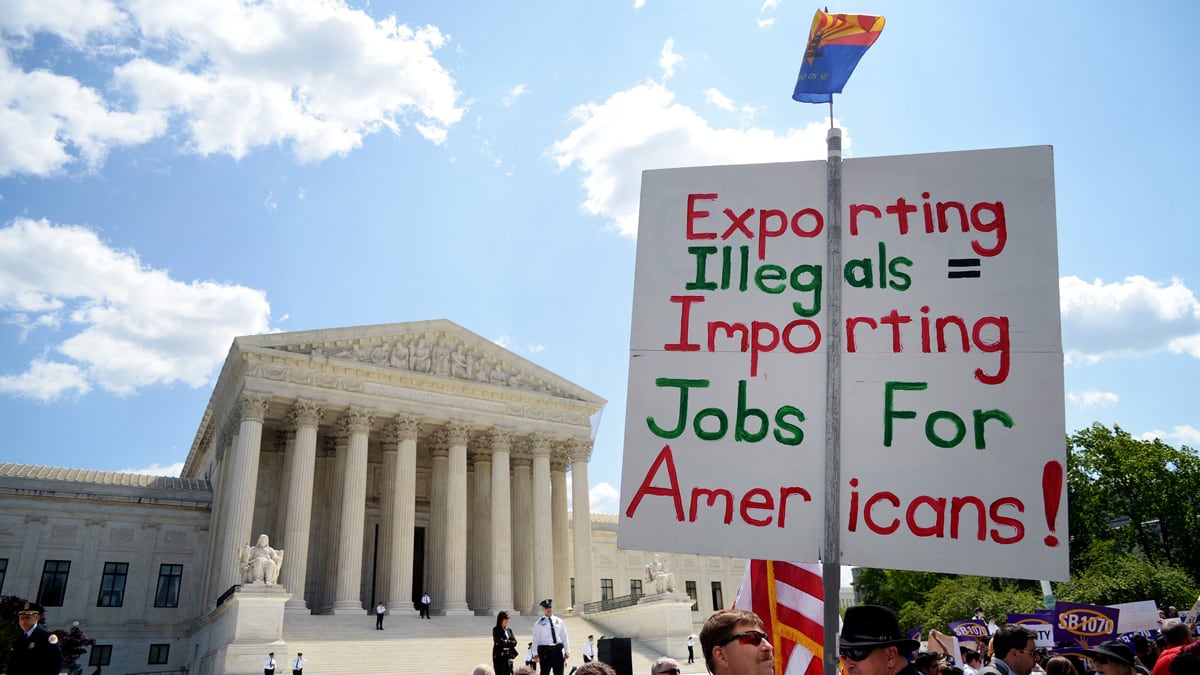
The Supreme Court's decision in Arizona v. United States is not getting a lot of love, but it seems to me Solomonic.
The decision upholds federal supremacy in immigration matters, as it should. Article I, Section 8 of the Constitution confers on Congress the power to regulate naturalization. If the United States is to be one country and one people, of course immigration must be enforced federally.
Arizona v. United States boldly underscores federal supremacy. As Justice Kennedy ruled for the majority:
"Federal law makes a single sovereign responsible for maintaining a comprehensive and unified system to keep track of aliens within the Nation’s borders."
At the same time, the court recognized that weak federal enforcement has burdened states, especially Arizona. It upheld the single most important element of Arizona's contested law SB 1070, empowering and requiring state police to check immigration status of an arrested person before releasing him or her.
This section of SB 1070 imports into immigration law the methods New York City used to crack down on gun violence. The police cannot stop people without valid cause. They cannot react to an accent of speech, a color of skin, or a style of car. But if in the course of stopping a person for probable cause, they discover that person to be present in the United States illegally, local police now have power and duty to act.
This is not the "papers please" police state conjured up by some opponents of immigration enforcement. It is a state where when police stop a drunk driver who turns out to be an illegal alien, they do not simply release him on grounds of over-work until his next drunk drive actually harms someone. Arizona police have not been launched on an illegal alien manhunt. But if they find illegals while doing other work, they no longer will shrug and release them. They will detain them and begin the process of removal—which is what federal law theoretically calls for in the first place.
One footnote: can we end the silly practice of categorizing every event in public life as either a "win" or "loss" for the president of the moment?
This media practice reminds me of the sad case of Major Major Major in Catch-22, who described every event in his environment as either a "feather in my cap" or a "black eye for me." A sensible outcome in the Arizona case is a win for everybody—and that's what we seem to have here.






